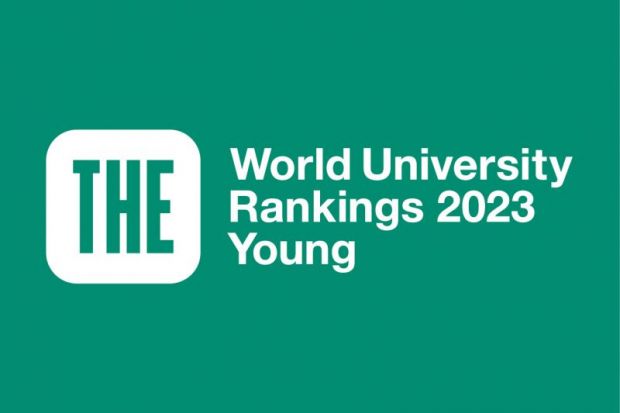THE’s Young University Rankings 2023 reveals the leading 'next generation' universities that are 50 years old or younger -- and topping the ranking is Nanyang Technological University in Singapore.
The institution, which was established in 1991, moved up one place from last year and is one of the highest ranked Asian universities in THE’s World University Rankings.
The Hong Kong University of Science and Technology is in second place, up one place from last year. The university, established in 1991, is one of the best in Hong Kong and focuses on providing students with a science and technology education.
In third place is Paris Sciences et Lettres – PSL Research University Paris, which moved down two places from last year, where it was first for the first time last year. The collegiate university was formed from a range of older institutions in 2010 with the aim of becoming one of the world’s leading research universities.
Top 10 universities in the world under 50
|
University |
Country/territory |
2023 rank |
2022 rank |
|
Nanyang Technological University, Singapore |
Singapore |
1 |
2 |
|
The Hong Kong University of Science and Technology |
Hong Kong |
2 |
3 |
|
Paris Sciences et Lettres – PSL Research University Paris |
France |
3 |
1 |
|
Hong Kong Polytechnic University |
Hong Kong |
4 |
5 |
|
Erasmus University Rotterdam |
Netherlands |
5 |
4 |
|
City University of Hong Kong |
Hong Kong |
6 |
10 |
|
University of Antwerp |
Belgium |
7 |
7 |
|
Institut Polytechnique de Paris |
France |
8 |
6 |
|
University of Technology Sydney |
Australia |
9 |
8 |
|
Ulsan National Institute of Science and Technology (UNIST) |
South Korea |
10 |
11 |
Australia has the world’s highest scoring young universities, on average, with an overall score of 53.0, coming ahead of all other countries that have had four or more institutions continuously ranked in THE’s Young University Rankings since 2019. The rankings see Germany drop to second place with an average score of 52.5. The United Arab Emirates climbs up to the third spot with 51.2, overtaking Italy and France.
Hong Kong has the most institutions - three - in the top 10, while France is the most represented country in the top 20, with five universities.
Italy’s Humanitas University is the highest new entry in the ranking in 29th place.
Turkey has the most universities with 47, followed closely by India with 45. Iran surpasses the UK-(which had 37 ranked universities last year) to become the third most-represented nation, with 39. There are 78 countries/territories in the ranking this year, up from 74 last year. Making their debut are: Bangladesh, Ethiopia and Namibia.
605 universities are in the ranking this year up from 539 in 2022. A further 358 institutions are listed with “reporter” status, meaning that they provided data but did not meet our eligibility criteria to receive a rank.
Top 10 countries with the most represented universities, including their highest ranked institution
|
Country/region |
Highest ranked university |
Ranking |
Number of ranked universities |
|
Turkey |
Koç University |
=55 |
47 |
|
India |
Mahatma Gandhi University |
=77 |
45 |
|
Iran |
Mazandaran University of Medical Sciences |
=65 |
39 |
|
United Kingdom |
Bournemouth University |
41 |
38 |
|
Spain |
Pompeu Fabra University |
18 |
32 |
|
Australia |
University of Technology Sydney |
9 |
23 |
|
France |
Paris Sciences et Lettres – PSL Research University Paris |
3 |
23 |
|
Pakistan |
University of Management and Technology |
101–150 |
22 |
|
Italy |
Sant’Anna School of Advanced Studies – Pisa |
19 |
18 |
|
Taiwan |
Asia University, Taiwan |
=65 |
18 |
Phil Baty, Times Higher Education’s chief global affairs officer, said:
“Some of the world's leading universities have had several centuries to accumulate wealth and reputation, so it is very important for Times Higher Education to shine a light on the younger generation of universities - the future Harvard and Oxfords. As well as those that have managed to make outstanding progress in rapid time, offering a case study for dynamic transformation.
“This ranking can act as an important contextual benchmarking system for rapidly emerging institutions and nations and also, we hope, a great tool for prospective students who want to make more informed decisions about where to study."
The table is based on the same 13 performance indicators as the flagship THE World University Rankings but the weightings have been adjusted to give less weight to reputation. The universities are judged across all their core missions: teaching, research, knowledge transfer and international outlook, to provide the most comprehensive and balanced comparisons.
The Young University Rankings was revealed at THE’s Europe Universities Summit at an exclusive fringe event discussing how young universities are leading the way in Europe, sponsored by Constructor University, Germany.
View the Young University Rankings 2023 methodology here, see the full Young University Rankings 2023 table here and read our analysis of the Young University Rankings 2023 results.
***ENDS***
